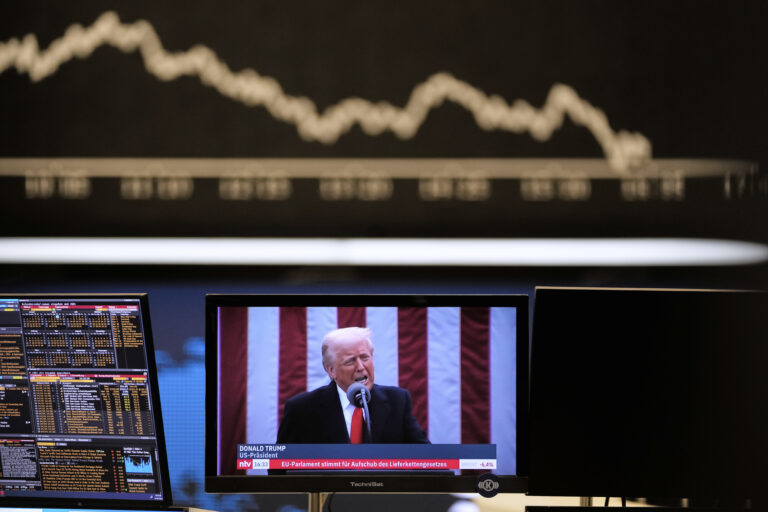Trump Tariffs to Cause Higher Costs, Projects Delays, Possible Recession
WASHINGTON—The worldwide fallout from President Trump’s actions to recast worldwide trade relations through tariffs have economists and experts in the construction and building industries expecting negative impacts ranging from rising costs and project delays to the onset of a full-blown recession.
Fortune Magazine reported on April 4 that the tariffs announced by Trump on April 4 caused JP Morgan to increase its recession risk this year to 60%. JP Morgan Private Bank reacted to President Trump’s tariff announcement by stating that based on a base of $3.3 trillion in U.S. goods imports, this year’s cumulative tariff hike could be viewed as a U.S. tax increase of roughly $660 billion, or 2.2% of GDP.
“This is a tax increase that dwarfs any tax hikes in recent decades,” JP Morgan declared in its analysis.

“This is a tax increase that dwarfs any tax hikes in recent decades,” JP Morgan declared in its analysis.
The firm noted that negotiations on tariffs are expected in the coming weeks and causing more uncertainty. “The full implementation of these policies could be viewed as a substantial macroeconomic shock. If sustained, these policies could push the U.S. and global economy into recession this year.”
Grassi Advisors Construction Practice Leader and partner Carl Oliveri listed short and potential long-term impacts from tariffs. “The immediate impact of the (previously imposed) tariffs has been the increase in costs for essential construction materials,” he wrote on April 4. “Steel and aluminum—critical for various construction applications—have seen price hikes. This affects everything from structural steel used in buildings to rebar and ductwork. The increased costs are felt across the industry, making it more expensive to undertake construction projects. An expanded tariff program will only increase and complicate the cost of building.”
Mr. Oliveri said that those higher costs will prompt many government agencies to decide whether to move forward with high-priced projects or delay or scale-back planned work. The material price volatility will also make it difficult for builders to accurately predict costs and plan budgets.
“For an industry that relies heavily on estimates, uncertainty of this nature can lead to higher bids and more conservative project planning, impacting the overall efficiency and cost-effectiveness of construction projects,” he wrote.
He also noted that these higher costs will only exacerbate the problem of developing affordable housing as builders brace for cost hikes on lumber, insulation, drywall and other products.
The National Association of Home Builders Chairman Buddy Hughes stated: “While the complexity of these reciprocal tariffs makes it hard to estimate the overall impact on housing, they will undoubtedly raise some construction costs. However, NAHB is pleased President Trump recognized the importance of critical construction inputs for housing and chose to continue current exemptions for Canadian and Mexican products, with a specific exemption for lumber from any new tariffs at this time.”
On April 2, 2025, the Trump administration continued to expand his tariff program on imported goods by announcing a baseline 10% tariff, with higher reciprocal levies on goods from Europe, Japan, China, and other nations. The new tariff is on top of those that have already been enacted on inbound steel and aluminum and those that have gone into effect on foreign-made vehicles and auto parts.
“While we have explored how tariffs could impact the construction industry, there is cause to revisit this topic as the tariffs are now broader and will drive up the costs of construction materials, equipment and tools. This is yet another challenge for builders and developers across the United States to grapple with,” Mr. Oliveri concluded.
Published: April 9, 2025.
